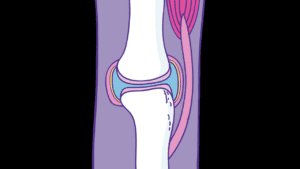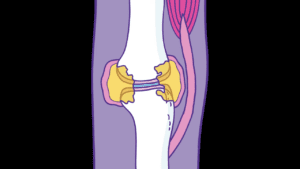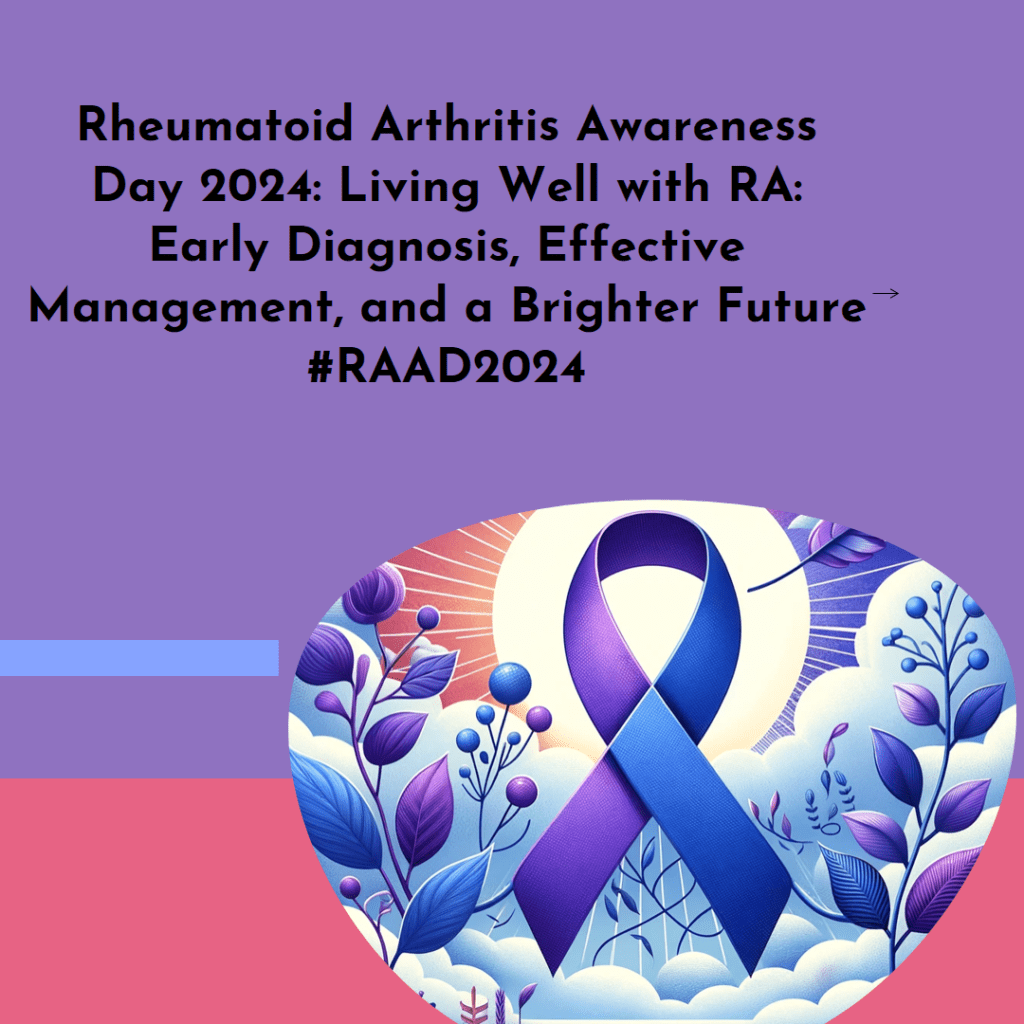RA Awareness Day 2024: “Living Well with RA: Early Diagnosis, Effective Management, and a Brighter Future”
Introduction and Definition of Rheumatoid Arthritis
February 2nd 2024 is Rheumatoid Arthritis (RA) Awareness Day 2024 and this year the theme is “Living Well with RA.”
RA is a chronic inflammatory disorder, primarily affects joints but can also impact other organs. It’s characterized by joint pain, stiffness, and swelling, leading to decreased mobility and quality of life. RA Awareness Day aims to shed light on the condition, promoting understanding and support for those affected.
Key Takeaways
| Aspect | Key Points |
|---|---|
| Early Diagnosis | Recognizing RA symptoms early is crucial for effective management and reducing long-term damage. |
| Effective Management | Combining medication, lifestyle changes, and supportive therapies is essential for managing RA. |
| Diet and Lifestyle | Adopting a Mediterranean diet and engaging in low-impact exercises can significantly alleviate RA symptoms. |
| Products and Therapies | Utilizing ergonomic products and therapies like the Tru Grip Door Handle Extension Kit and Functionalhand Universal Grip Aid can ease daily tasks. |
| Support and Awareness | Support from community and awareness initiatives are vital for improving the lives of those with RA. |
The Importance of Early Diagnosis in Rheumatoid Arthritis: A Step Towards Better Management
Rheumatoid Arthritis (RA) is more than just joint pain; it’s a chronic inflammatory disorder that can affect more than just your joints.
In some people, the condition can damage a wide variety of body systems, including the skin, eyes, lungs, heart, and blood vessels.
Understanding and recognizing the early signs and symptoms of RA is paramount. These can include tender, warm, swollen joints, joint stiffness that is usually worse in the mornings and after inactivity, fatigue, fever, and loss of appetite.
Early diagnosis of RA is crucial. It’s not just about managing pain; it’s about preventing severe complications and joint damage.
Delays in diagnosis and treatment can result in irreversible damage to the joints. It’s important to recognise symptoms and get early medical attention because that can help slow the disease and lead to a better quality of life.
Managing RA
Living with RA doesn’t mean you have to put your life on hold. There are numerous ways to manage the condition effectively. Treatment typically involves a combination of medication, rest, physical therapy, and, in some cases, surgery. Medications can range from steroids to reduce inflammation to disease-modifying antirheumatic drugs (DMARDs) that slow the progression of the disease.
However, management isn’t just about medication. Lifestyle changes play a crucial role too. This includes maintaining a balanced diet, regular exercise to keep your joints flexible, and practising stress management techniques.
Diet and Lifestyle Changes for Managing Rheumatoid Arthritis
Diet Changes

- Mediterranean Diet: Embracing a Mediterranean diet, which is abundant in fruits, vegetables, whole grains, and healthy fats, has been shown to benefit those with RA. This diet emphasizes anti-inflammatory foods, contributing to symptom relief【https://www.arthritis.org/health-wellness/treatment/treatment-plan/tracking-your-health/foods-that-can-help-ra-symptoms】.
- Fatty Fish: Regular consumption of fatty fish like salmon, tuna, and sardines, known for their high omega-3 fatty acid content, can aid in controlling inflammation, a key aspect of RA.
- Healthy Fats: Shifting towards a diet lower in saturated fats and richer in omega-3 and monounsaturated fats, such as those found in olive oil, can have positive effects on RA symptoms【https://www.bda.uk.com/resource/rheumatoid-arthritis-diet.html 】
Further Reading On Diet For RA
There is a long research paper comparing the effects of different diets on symptoms here.
Lifestyle Changes
- Exercise: Low-impact aerobic activities, including walking, biking, or swimming, coupled with stretching and strengthening exercises, are beneficial in easing RA symptoms and preventing long-term joint damage.
- Weight Management: Keeping a healthy weight is crucial, as excess weight can exacerbate joint pressure and affect medication efficacy. There is a useful diet plan here.
- Rest: Adequate rest is vital, especially during flare-ups. It’s important to allow the body to recover before gradually resuming exercise
- Limit Alcohol and Quit Smoking: Reducing alcohol intake and quitting smoking are key lifestyle adjustments that can help manage RA symptoms and enhance overall health.
Consulting a healthcare professional before making significant dietary or lifestyle changes is always recommended. This holistic approach, combining diet, lifestyle, and medical treatments, offers a comprehensive strategy for managing RA effectively.
Community and Peer Support
 Moreover, the power of a supportive community cannot be overstated. Joining support groups or online forums can provide invaluable emotional support and practical advice.
Moreover, the power of a supportive community cannot be overstated. Joining support groups or online forums can provide invaluable emotional support and practical advice.
Here are three support groups and online forums for people with rheumatoid arthritis (RA) available in the UK:
- NRAS Local Groups
- The National Rheumatoid Arthritis Society (NRAS) offers local support groups across the UK, providing an opportunity to connect with others living with RA from the same area.
- Versus Arthritis Community
- Versus Arthritis is a UK community that provides support for people with arthritis, including RA, and offers an online community for individuals and their families to connect and access support and information.
- Arthur’s Place For Young People
- A magazine and social network for young adults with arthritis can be found at Arthur’s Place.
Causes and Symptoms of RA


Rheumatoid Arthritis (RA) is an autoimmune disease where the immune system mistakenly attacks the body’s tissues, particularly the synovium, a soft tissue in joints.
This leads to inflammation, causing joint pain and swelling.
The exact cause of RA is unknown, but factors like genetics, environment, and hormones may contribute.
Symptoms
- Typical symptoms encompass tender and swollen joints.
- Joint stiffness tends to worsen in the mornings or after periods of inactivity.
- Other common indicators are fatigue, fever, and loss of appetite. typically include tender, swollen joints, joint stiffness that is worse in the mornings or after inactivity, fatigue, fever, and loss of appetite.
These symptoms vary in severity and may develop gradually or suddenly.
Daily Impact and Living with RA
Living with Rheumatoid Arthritis (RA) can impact your day-to-day life in various ways:
- Joint Pain and Stiffness: This can make it hard to move around and do daily tasks. Simple things like walking, holding things, or bending over might become tough.
- Tiredness: RA often makes people feel really tired, which can make it hard to stay active or focused.
- Unpredictable Flare-Ups: Sometimes, RA symptoms can get worse suddenly, which can be stressful and affect your mood.
- Emotional Effects: Dealing with RA can sometimes make you feel upset or alone. But it’s important to remember that many people find ways to feel better and stay active.
- Adapting Your Life: Lots of people with RA find new ways to do things that work better for them. This can include changing how they do everyday tasks or finding new tools to help.
With the right care and changes, many people with RA can keep doing the things they love and have a good quality of life.
Products and Therapies for RA
For those living with Rheumatoid Arthritis (RA), a variety of treatments and products can significantly improve their quality of life. Medications like DMARDs (Disease-Modifying Antirheumatic Drugs) and NSAIDs (Nonsteroidal Anti-Inflammatory Drugs) play a crucial role in managing symptoms and slowing disease progression.
Alongside medication, physical therapy can help maintain joint flexibility and strength.
Additionally, products like ergonomic aids, specialised kitchen tools, and supportive footwear, available in our shop, can ease daily tasks and reduce strain on joints.
For those living with Rheumatoid Arthritis (RA), there are several products available at Disability Horizons that can significantly aid in managing daily tasks and improving quality of life. Here are five notable products:
- Tru Grip – Door Handle Extension Kit: This kit is designed to make opening and closing doors easier for individuals with arthritis. It’s easy to install and provides extra leverage and grip, making it suitable for both indoor and outdoor use.
- Functionalhand – Universal Grip Aid: This innovative aid helps individuals with limited hand function to hold and use a variety of objects such as utensils, pencils, and personal care items. It’s versatile, promoting independence in daily activities and can be particularly beneficial for those with RA.
- Arthri-Grip Pro Reacher Grabber Aid: This tool is useful for those with limited mobility or difficulty bending and reaching. It helps in picking up objects from a distance, minimizing the strain on joints.
- Deluxe Hand Exerciser: This exerciser is designed to improve dexterity and strength in the hands, which can be affected by RA. Regular use can help in maintaining hand function and reducing stiffness.
- Pedal Exerciser: This product is great for low-impact exercise, suitable for both upper and lower-body workouts. It’s ideal for maintaining muscle tone and flexibility, which can be beneficial for people with RA.
- Feathertail Wearable Mouse Helps you use a computer without pain. It’s a wearable mouse.
These products are tailored to ease the daily challenges faced by individuals with RA, focusing on enhancing independence and improving overall quality of life.
Famous People with RA
Some famous people who have been open about their experiences with rheumatoid arthritis (RA) include:

- Kathleen Turner: A legendary Hollywood actress known for her roles in films like “Peggy Sue Got Married”.
- Paula Abdul: A singer and dancer who has been open about her diagnosis with both rheumatoid arthritis and osteoarthritis.
- Caroline Wozniacki: A former professional tennis player who has spoken about her journey with rheumatoid arthritis.
- Terry Bradshaw: An American football legend who has been public about his experience with rheumatoid arthritis.
- Camryn Manheim: An actress known for her roles in “The Practice” and “Ghost Whisperer”.
These individuals help dispel misconceptions about RA and encourage others to seek treatment and support.
Preventive Measures and Management Strategies
While there is no cure for RA, early diagnosis and proactive management can significantly improve outcomes.
Regular medical check-ups, adherence to treatment plans, and lifestyle adjustments like a balanced diet and regular exercise are vital.
Avoiding smoking and reducing stress is also important.
Educating the public about RA symptoms and risk factors is crucial for early diagnosis, while ongoing research continues to explore more effective treatments and management strategies.
Linking to a Brighter Future: Advancements in RA Research and Treatment
 RA Awareness Day 2024 also brings a message of hope and progress. Research into RA is constantly evolving, with new treatments and therapies being developed that aim to improve the quality of life for those with RA.
RA Awareness Day 2024 also brings a message of hope and progress. Research into RA is constantly evolving, with new treatments and therapies being developed that aim to improve the quality of life for those with RA.
New Treatments for RA
Advancements in the treatment of rheumatoid arthritis (RA) have introduced new options, including biologic disease-modifying antirheumatic drugs (DMARDs) and Janus kinase (JAK) inhibitors, which offer innovative ways to slow or prevent joint damage.
- JAK Inhibitors: The newest class of drugs for RA, JAK inhibitors work by blocking the enzymes Janus kinase 1 (JAK1), JAK2, JAK3, and tyrosine kinase 2, which play a role in slowing or stopping the progression of the disease, preventing joint damage, improving physical function, and relieving fatigue and weakness.
- FDA-Approved JAK Inhibitors: Drugs such as Rinvoq, Olumiant, and Xeljanz are FDA-approved JAK inhibitors that work by blocking the activity of one or more of the Janus kinase in the JAK-STAT signalling pathway, a major pathway in the release of pro-inflammatory cytokines.
- Baricitinib (Olumiant): The U.S. Food and Drug Administration (FDA) recently approved baricitinib (Olumiant), a JAK inhibitor taken once a day, for the treatment of moderate to severe RA.
- Biodegradable Polymer System: A new biodegradable polymer system has been developed to treat RA by working with the human immune system, offering potential new hope for the treatment of the condition.
- TNF Inhibitors and Other DMARDs: In addition to JAK inhibitors, other biologic DMARDs such as TNF inhibitors and non-biologic DMARDs are also part of the treatment landscape for RA, aiming to minimize joint damage and enhance physical function.
These advancements represent significant progress in the management of RA, providing patients with a wider range of treatment options to address the progression of the disease and improve their quality of life.
RA Awareness Day 2024
RA Awareness Day 2024 is a reminder of the importance of early diagnosis, effective management, and the brighter future that lies ahead thanks to ongoing research and advancements. By understanding RA, seeking timely medical advice, and utilizing available treatments and supportive resources, individuals with RA can lead fulfilling lives.

